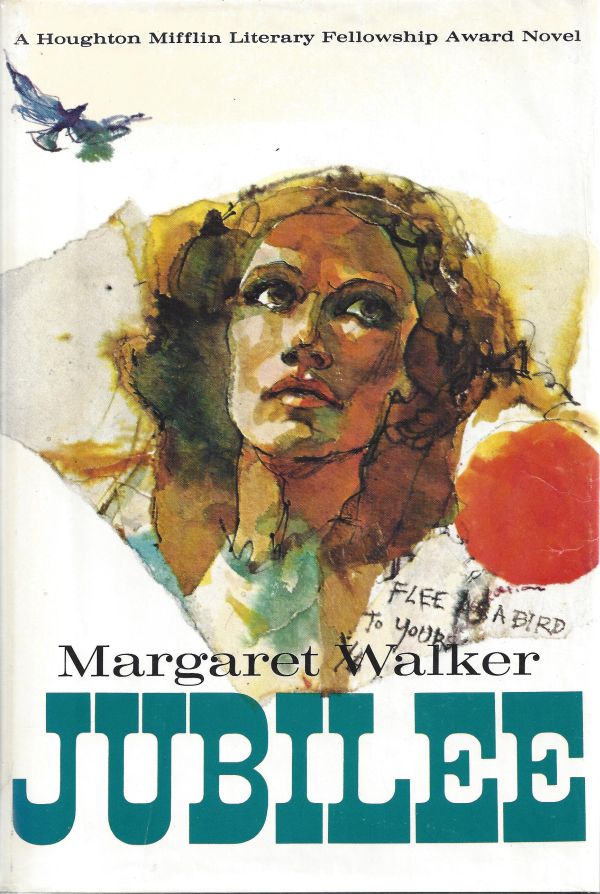 Jubilee by Margaret Walker. Boston: Houghton Mifflin, 1966.
Jubilee by Margaret Walker. Boston: Houghton Mifflin, 1966.
Poet Nikki Giovianni described her good friend Margaret Walker as “the most famous person nobody knows.” While known for her signature poem “For My People,” her novel Jubilee was the first modern novel on slavery.
Walker’s parents were both teachers and always encouraged her to do well in school as they moved from Birmingham to Meridian to New Orleans. By the Great Depression, Walker had finished college at Northwestern and was working for the WPA Writer’s Project with Richard Wright in Chicago. Her collection of poems, For My People, was published in 1942 by Yale Press and she became the first black woman to be awarded Yale Younger Poets Prize. Her literary reputation was established.
Despite this literary success, Walker had an even greater and perhaps an even more personal ambition: to write a novel based on the life of her grandmother. Jubilee was a thirty-year labor of love for Walker. The novel was to span slavery, civil war and reconstruction. She immersed herself in historical records and slave narratives, collected the stories of her family and visited old home sites while juggling the responsibilities of teaching and raising a family with four children. Sadly, Walker’s grandmother died before the Jubilee was published in 1966.
Jubilee is significant because until the 1960s black historical fiction had hardly been attempted by black writers. Jubilee was the first novel to be written by a black writer from slavery to reconstruction from the daily perspective of the black population. That Walker took 30 years to research it from a historical perspective while maintaining the heart of the story gleaned from her grandmother’s stories is no surprise. Scholars have credited Walker with paving the way for other black historical novels like Ernest Gaines’s The Autobiography of Miss Jane Pittman and Toni Morrison’s Beloved.
Margaret Walker devoted her life to teaching and her community at Jackson State University for thirty years before retiring in 1980. As Walker was involved in her community, many may cherish signed copies of her work. For collectors, first editions of Jubilee can be found at a reasonable price though signed copies are scarce.
Learn more about Margaret Walker’s Centennial Celebration at the Margaret Walker Center.
Written by Lisa Newman, A version of this column was published in The Clarion-Ledger’s Sunday Mississippi Books page.


Comments are closed.